
The Internet's a wonderful thing, but it can also be a royal pain. Fortunately, there's help.
[Via] It seems that every day we go online and there's some new type of nagging Web annoyance to deal with. In a perfect world, we wouldn't have to worry about auto-playing video ads, leaping pay walls to read the news, fake emails phishing for our bank details, or Farmville spam from Facebook. But for now, we're on our own. Here are 15 of the most annoying things on the Internet, and how to work around, ignore, improve or fix them.You Must Register

My abbreviated rant on pay and registration walls: No. Impressive as it as that sites can track your visits without any sign-in process, asking to cough up money after a limited number of articles--I'm looking at you, Financial Times--is silly if you're not a regular reader.
The Fix: Some sites, such as the Wall Street Journal, will let you in via aggregators like Google News. So if you're blocked, try a Google News search on the subject. You can also try snipping some of the text and plugging it into a search engine, in quotes, to see if another site has quoted or summarized the article.
Social Networking Overload
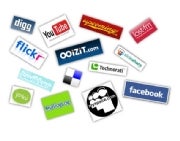
Between Facebook, Twitter, MySpace, Foursquare and now Google Buzz, there are just too many social networks to keep track of. Sure, you could pick one and stick with it, but then you might only be paying attention to some friends while neglecting others. It's the worst kind of information overload.
The Fix: Use a program that aggregates several social networks into one interface, such as Digsby or Meebo. You might not get the full functionality of your favorite network, but at least you can keep an eye on status updates with minimal effort.
This Ad is a Video

Is it just me, or have Web sites with auto-playing video ads become more prevalent lately? Congratulations, advertisers, you got me to listen to your pitch by sheer force. Only now, I hate your brand, if only I could remember what it was.
The Fix: Here's a neat piece of Windows software called FlashMute. It installs to your system tray and can deny Flash access to your audio hardware. Just click the icon or hit Ctrl-Alt-M to switch it on and off. Note: Anti-virus programs tend to flare up when visiting FlashMute's download page. The developer says it's because FlashMute uses the same method of hooking into your browser as some types of AdWare, but it's only intercepting sound from Flash and other Web sources. Fair warning.
I Don't Care About Farmville

Farmville ribbons, quiz results, articles on subjects you don't care about--isn't Facebook magical? As nice as it is to keep in touch with friends (or “friends”) and look at photos from bar night, constantly hearing about the time-killing habbits of others can be downright boring.
The Fix: Firefox users can check out Facebook Purity, a script that's part of the browser's GreaseMonkey add-on. It automatically strips quizzes and other application notices from your Facebook home page For everyone else, there's Facebook Lite, which strips your feed down to its bare essentials.
Too Much Phishing

The number of schemes that pop up on the Internet are too numerous to mention, but recent attacks on Twitter, Facebook, Hotmail, Gmail Talk, and Adobe PDF files come to mind. Even if you've never been hit, you can't help but be annoyed that these scams exist.
The Fix: Here are some tips on how to avoid getting scammed, and how to spot malicious links buried in TinyURLs. Fortunately, most browsers, including Internet Explorer, Firefox, Chrome, Safari and Opera, all include some sort of anti-phishing filters.
Don't Open That Window
 We are Web surfers, not babies, so why do some Web sites open new browser windows or tabs when you click on a link? If your site is compelling enough, I promise I won't leave just to check out a link.
We are Web surfers, not babies, so why do some Web sites open new browser windows or tabs when you click on a link? If your site is compelling enough, I promise I won't leave just to check out a link.The Fix: Firefox users can type about:config in the address bar, search for “browser.link” in the filter field, double click on open_newwindow and change the value to 1. Still, I wish browsers had a “never open in new window or tab” option. My solution was to train myself over many years to open pretty much everything in its own tab.
A Frame to Block Your View
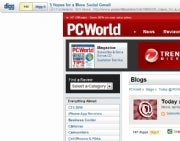
I thought browser frames went out with Netscape Navigator, but once again our Web browsers are being invaded by the DiggBar and its ilk. These are sad attempts to keep us penned in to one site's pages.
The Fix: Once again, add-ons save the day, at least for Firefox users. The DiggBar Killer script for Firefox's Grease Monkey add-on will ensure that you never see the DiggBar again.
This Link is an Ad
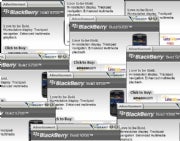
No money-making editorial Web site is free of advertisements--PCWorld included--but I hope my publishers never include those links that create a pop-up ad when you hover over them. Do people even look at those ads? I just hunt for the “X” and get back to the editorial.
The Fix: Internet Explorer users have it easy: Go to your list of restricted sites (Tools, Internet Options, Security, Restricted Sites in IE8) and block the following: “*.vibrantmedia.com,” “*.intellitxt.com” and “*.kontera.com.” Firefox users can get the same results by restricting those sites with the BlockSite add-on. Everyone else can block those sites with a free OpenDNS account.
Junk Sites in Search Results
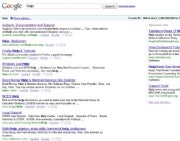
Have you ever navigated past the first or second page of search results? It's a wasteland of junk Web pages and bad information. If Google, Bing and Yahoo replaced those back pages with a message that read, “You've failed. Try again,” I don't think we'd be any worse off.
The Fix: I can't make search engines read your mind, but I can shamelessly promote some expert advice on getting better Google searches. And don't neglect subsections of search engines, such as Google News and Bing Shopping.
This Search Bar is Worthless

As a whole, Web sites' internal search engines are so bad that I rarely trust them anymore. They'll fail to dig up that article you read a few months ago, or they'll bury it among countless irrelevant results, and they lack the tools of a real search engine.
The Fix: Head to your search engine of choice and precede your search with site:nameofsite.com "what you're looking for” for a surprisingly good index of what you seek. Google can even display results by date when you click “Show options.”
We Don't Serve Your Browser Here

Just because Internet Explorer has over 60 percent of the Web browser market, some sites don't support any other browser, such as page for HP computers. If you use something else, opening a page in IE feels like sleeping in a stranger's bed.
The Fix: Use the Coral IE Tab add-on for Firefox and the IE Tabs extension for Chrome. The former even lets you mark specific sites to automatically open an Internet Explorer tab in the future.
I'm Not a Robot, Honest
 There must be a special circle of hell reserved for CAPTCHA, that little section at the end of a form where you must decipher and re-type a few barely legible letters and numbers. The intentions are good--stop spammers from pummeling Web forums--but there's got to be a better way. Same goes for annoying wait times before you can start downloading a file.
There must be a special circle of hell reserved for CAPTCHA, that little section at the end of a form where you must decipher and re-type a few barely legible letters and numbers. The intentions are good--stop spammers from pummeling Web forums--but there's got to be a better way. Same goes for annoying wait times before you can start downloading a file.The Fix: I've spent too long looking for an easy solution to no avail. An experimental Firefox add-on called NoCaptcha reportedly doesn't work. However, MegaUpload users can try MegaUpload TimeAttack, which automatically fills out forms and starts downloads, and SkipScreen helps jump the wait line for Rapidshare and Megaupload. MySpace users can skip CAPTCHA by verifying their account with a phone number. Also, Mashable has some tips for dealing with Facebook's CAPTCHA: You needn't type spaces, numbers, dashes, colons, semicolons, apostrophes, characters with umlauts.
This Web Site is Bogus
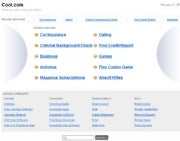
Sometimes when you mistype a URL or click an old, abandoned link, you'll come upon these junky Web sites filled with useless links, a search bar that returns who-knows-what and a deliciously ironic slogan, “What you need, when you need it.” This is the work of cybersquatters, who occupy Web sites in hopes that you'll click on those links and make them some money.
The Fix: Firefox users can once again use BlockSite to turn one major cybersquatter's Web sites into blank pages--just add “*.information.com” to your restricted list. This will foil one major cybersquatter whos sites always refer back to that domain, but unfortunately the same trick doesn't work in Internet Explorer's list of restricted sites. No matter what browser you're in, never give squatters the satisfaction of clicking on anything.
Flash Spoils Appetites
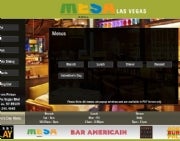
I don't understand restaurants' fascination with Flash Web pages. Maybe they're intentionally trying draw out the navigation process to make us hungrier, thereby ordering an extra appetizer or two. It's not working.
The Fix: Why bother with restaurant Web sites any more, especially if you're dining in a city? Use sites like Yelp and UrbanSpoon for information, OpenTable for reservations and MenuPages for menus.
Five Stars, Big Surprise
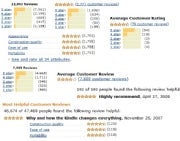
The problem with online user reviews is that everyone's in denial (or a covert shill). No one wants to admit their budget HDTV has a terrible viewing angle or their new netbook's keyboard feels like putty. Save for the one guy who got bad customer service and awarded one star (and ranted in all capital letters), user reviews inevitably land in the four- to five-star range. The exception is music, movie, game and book reviews, for which everyone wants to be a critic.
The Fix: There is valuable information to be gleaned from the crowd. Just look for consistencies. Steer clear of the 5-star laptop where even the enthused complain of tinny speakers, or the fridge that everyone says can get a little loud.
Enjoy this post? View more in links below




